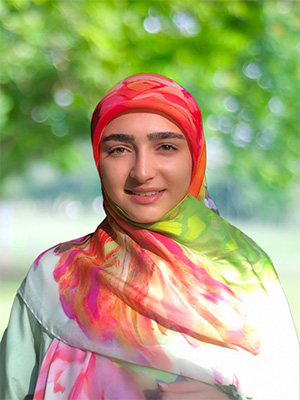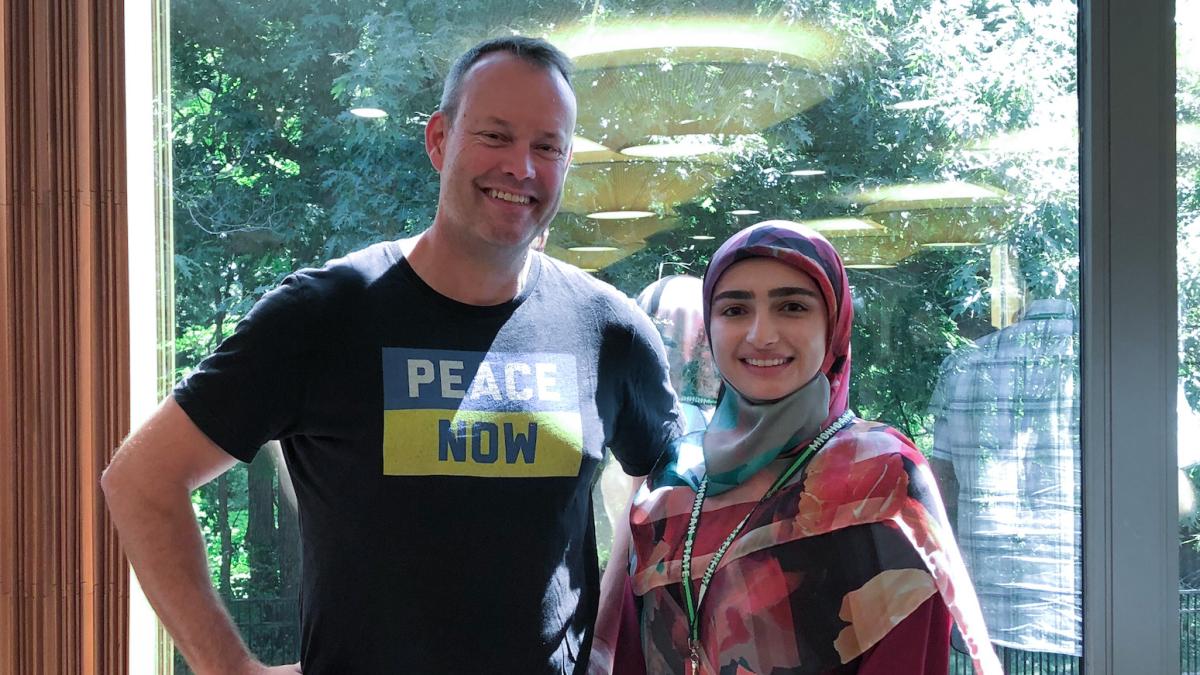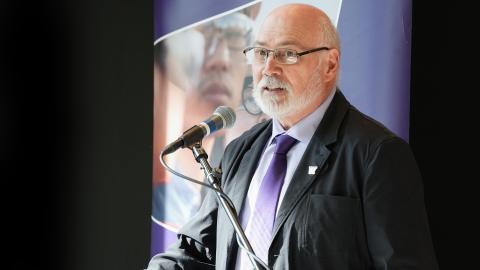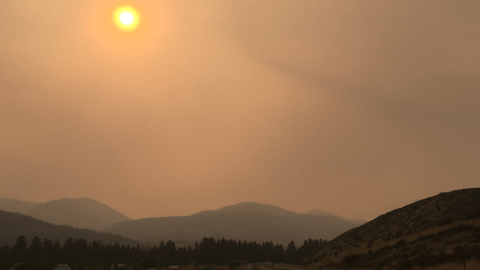Mariam Assaad
MPH, Environmental Health Sciences
Hometown
Brazil and Lebanon
Future plans
Utilize my degree to create a healthier environment and safer workplaces.
“I am grateful for the hands-on experiences, the lessons I’ve learned, and the meaningful connections I’ve built.”
- Mariam Assaad
As an MPH student in Environmental Health Sciences, I am focused on understanding the water quality of eyewash stations, a critical component in safeguarding the health of students, researchers, and workers in various industries.
I've delved into the microbial world of workplace eyewash stations at the UW Environmental and Occupational Health Microbiology Lab in the Department of Environmental & Occupational Heath Sciences (DEOHS).
These stations play a vital role in providing immediate relief to individuals exposed to hazardous materials. My research aims to uncover potential risks associated with pathogenic bacteria and amoeba that can thrive in stagnant water within these eyewash systems.
By collecting water samples from different eyewash stations, I'm investigating the presence of microorganisms such as Legionella, Mycobacteria and Acanthamoeba. Through laboratory analyses, I'm evaluating the effectiveness of different flushing protocols in minimizing contamination risks.
This research not only sheds light on the importance of maintaining safe water in emergency eyewash stations but also contributes to enhancing workplace safety standards.
Training and mentorship on microbial health risks
This past summer, I had the privilege to be a part of the Quantitative Microbial Risk Assessment Interdisciplinary Vehicle Training (QMRA IV) program, an opportunity for in-depth training and mentorship in the field of microbial risk analysis. I was trained on quantifying microbial risks and their implications for safety and health.

I'd like to extend my gratitude to my adviser, DEOHS Professor Scott Meschke, for his guidance in advising me to participate in the training and for his mentorship throughout my graduate school journey so far.
Protecting respiratory health and hearing
During the summer, I joined the UW Environmental Health & Safety unit as an intern, where I contributed to both environmental and occupational aspects of the team’s work. I owe this opportunity to my department, whose support was instrumental in shaping this experience.
I primarily worked with the Respiratory Protection Program, where I conducted qualitative and quantitative respiratory fit tests for university personnel enrolled in the program. I also worked with the Hearing Loss Prevention Program, where I conducted noise hazard evaluations and analyzed the resulting data.
Furthermore, I was actively engaged in the upkeep of industrial hygiene sampling equipment and its related supplies. That includes preparing equipment for calibration off-site, performing on-site calibration, and providing support to the industrial hygiene operations of the department as required.
Solving real-world problems

The highlight of my internship was encountering real-world challenges that required immediate action. On several occasions, we received indoor air quality complaints from different buildings.
It was our responsibility to investigate these concerns, perform air quality tests, and identify the factors contributing to poor indoor air quality. Learning how to offer tangible solutions to improve air quality, and subsequently providing people with safer work environments, was truly gratifying.
The DEOHS grad experience
In my first year of the DEOHS graduate program, I experienced significant academic growth through many courses that deepened my understanding of environmental and occupational health.
Engaging in research projects and collaborations highlighted my accomplishments and enhanced my problem-solving skills. Also, networking with peers, professors and professionals expanded my perspective and introduced me to valuable insights.
I am grateful for the hands-on experiences, the lessons I’ve learned, and the meaningful connections I’ve built.




